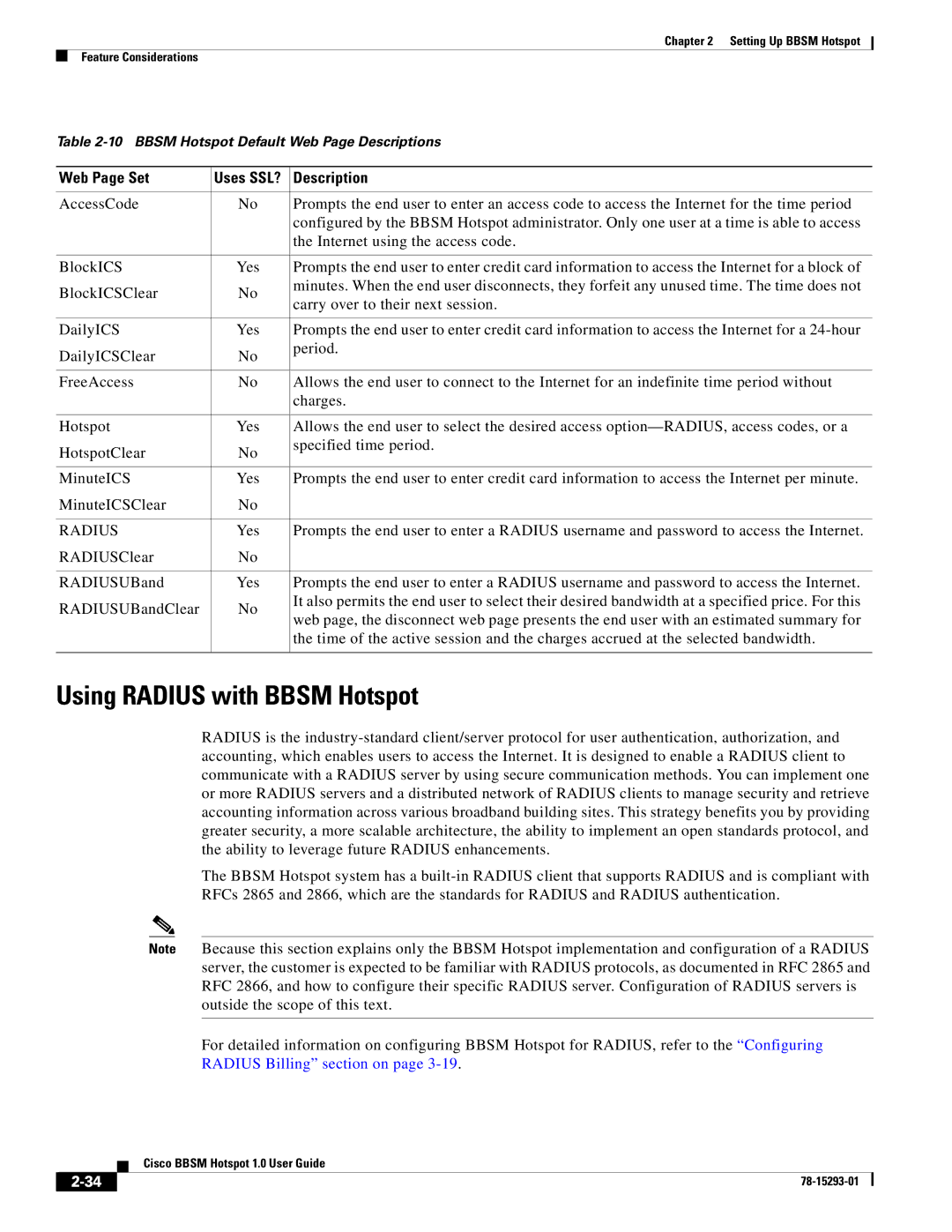
Chapter 2 Setting Up BBSM Hotspot
Feature Considerations
Table
Web Page Set | Uses SSL? | Description | |
|
|
| |
AccessCode | No | Prompts the end user to enter an access code to access the Internet for the time period | |
|
| configured by the BBSM Hotspot administrator. Only one user at a time is able to access | |
|
| the Internet using the access code. | |
|
|
| |
BlockICS | Yes | Prompts the end user to enter credit card information to access the Internet for a block of | |
BlockICSClear | No | minutes. When the end user disconnects, they forfeit any unused time. The time does not | |
carry over to their next session. | |||
|
| ||
|
|
| |
DailyICS | Yes | Prompts the end user to enter credit card information to access the Internet for a | |
DailyICSClear | No | period. | |
| |||
|
|
| |
FreeAccess | No | Allows the end user to connect to the Internet for an indefinite time period without | |
|
| charges. | |
|
|
| |
Hotspot | Yes | Allows the end user to select the desired access | |
HotspotClear | No | specified time period. | |
| |||
|
|
| |
MinuteICS | Yes | Prompts the end user to enter credit card information to access the Internet per minute. | |
MinuteICSClear | No |
| |
|
|
| |
RADIUS | Yes | Prompts the end user to enter a RADIUS username and password to access the Internet. | |
RADIUSClear | No |
| |
|
|
| |
RADIUSUBand | Yes | Prompts the end user to enter a RADIUS username and password to access the Internet. | |
RADIUSUBandClear | No | It also permits the end user to select their desired bandwidth at a specified price. For this | |
web page, the disconnect web page presents the end user with an estimated summary for | |||
|
| ||
|
| the time of the active session and the charges accrued at the selected bandwidth. | |
|
|
|
Using RADIUS with BBSM Hotspot
RADIUS is the
The BBSM Hotspot system has a
Note Because this section explains only the BBSM Hotspot implementation and configuration of a RADIUS server, the customer is expected to be familiar with RADIUS protocols, as documented in RFC 2865 and RFC 2866, and how to configure their specific RADIUS server. Configuration of RADIUS servers is outside the scope of this text.
For detailed information on configuring BBSM Hotspot for RADIUS, refer to the “Configuring RADIUS Billing” section on page
Cisco BBSM Hotspot 1.0 User Guide
| ||
|
